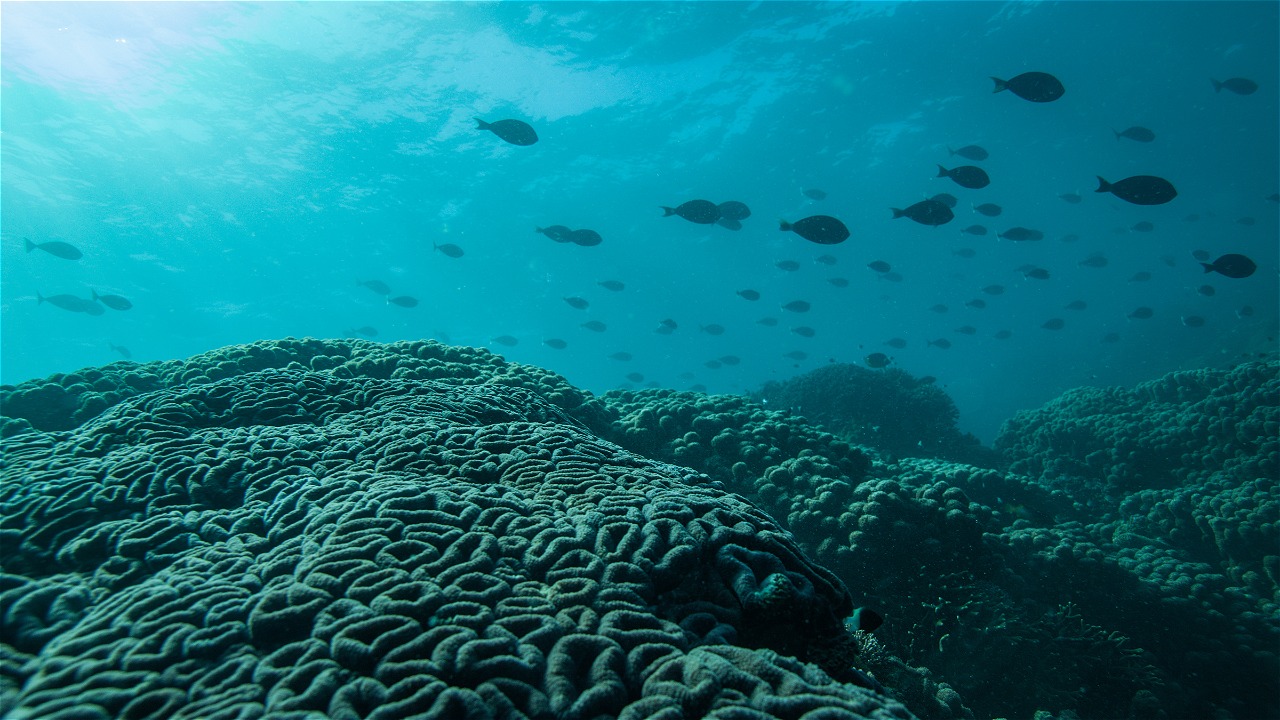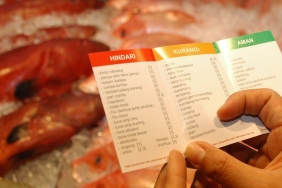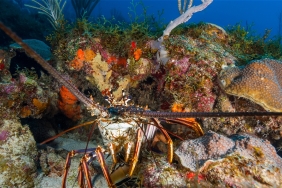DISCUSSION ON THE SYNERGY BETWEEN FISHERIES BUSINESS PLAYERS AND THE GOVERNMENT
By: Usmawati Anggita Sakti
This year is the 8th year of Seafood Savers as an initiative of WWF-Indonesia in improving fisheries practices in Indonesia. In order to improve the performance of the program, Seafood Savers held the Seafood Savers Annual Meeting 2017 as an annual activity intended to accommodate company members with relevant stakeholders to discuss the draft work plan for sustainable fisheries improvement programs.
Located in London Meeting Room, 4th Floor, Mercure Grand Mirama Hotel, Surabaya, Seafood Savers Annual Meeting 2017 was held for two days on May 18-19. Specifically, this event has several objectives, namely providing the latest information about the secretariat of Seafood Savers, establishing strategic plans and activities of Seafood Savers in the future that are significant for the realization of sustainable fisheries business and creating a discussion space to discuss the opportunities and challenges of fisheries improvement in Indonesia between fisheries business actors and the government.
In accordance with the purpose of the activity, the participants of the event were companies that have become members of Seafood Savers, including PT Hatindo Makmur, PT Satu Enam Delapan Benoa, PT Mustika Mina Aurora, PT Samudra Eco Anugrah (SEA) Indonesia, PT Cassanatama Naturindo, PT Bumi Menara Internusa, PT Sekar Laut Tbk., PT Kemilau Bintang Timur, PT Bogatama Marinusa, PT Celebes Seaweed Group, PT Primo Indo Ikan and PT Balinusa Windumas and presented resource person Dr. Artati Widiarti from the Directorate of Promotion, Directorate General of PDSPKP, Ministry of Maritime Affairs and Fisheries.
Seafood Savers Annual Meeting 2017 was officially opened by Seafood Savers Manager, Abdullah Habibi. "This year, KKP is again involved in the Seafood Savers Annual Meeting discussion agenda. It is expected that today's discussion which is gathered together by member companies, both old companies and 5 new companies can produce the formulation of a strategic work plan," said Abdullah Habibi.
Followed by a presentation by the Seafood Savers secretariat, on this occasion Seafood Savers explained about the contribution of Seafood Savers to the improvement of fisheries in Indonesia since 2009 and the implementation of various dialogue and socialization activities and sustainable seafood campaigns, including workshops with the Ministry of Maritime Affairs and Fisheries (KKP), the signing of new member companies, training of Aquaculture Stewardship Council (ASC) aquaculture ecolabel certification assessor candidates, training of Marine Stewardship Council (MSC) capture fisheries certification assessor candidates, in store campaigns, as well as publications related to the Seafood Savers website with a new look.
The first day's agenda included the presentation of the progress of the fisheries improvement program, both from the side of the company undergoing and the accompanying WWF-Indonesia technical team. Each company representative had the opportunity to explain the company's profile and progress in the Fisheries Improvement Program (FIP) or Aquaculture Improvement Program (AIP). The presentation was also completed with the background of joining the Seafood Savers membership and the obstacles felt during the program.
The second day continued with discussion activities to explore suggestions and input for the institution and fisheries improvement program initiated by Seafood Savers. The first discussion resulted in internal input for the Seafood Savers program, while the second discussion focused on input for the government.
In this session, Dr. Artati Widiarti explained about the consumption trend towards sustainable products in Indonesia and the world. "Sustainable products should get a premium prize in the market and actors who have been concerned about sustainability aspects should get an award," said Dr. Artati Widiarti.
Dr. Artati Widiarti also hopes that with the Seafood Savers program there will be many fisheries companies interested in joining the fisheries improvement program. This will also certainly be accompanied by support from the Government through the birth of various regulations, one of which is a ministerial regulation regarding the prohibition of company vessels carrying out environmentally unfriendly practices. Through this discussion and meeting, it is hoped that there will be a stronger synergy between business people and the government so that fisheries improvement programs and sustainable fisheries can be achieved.





